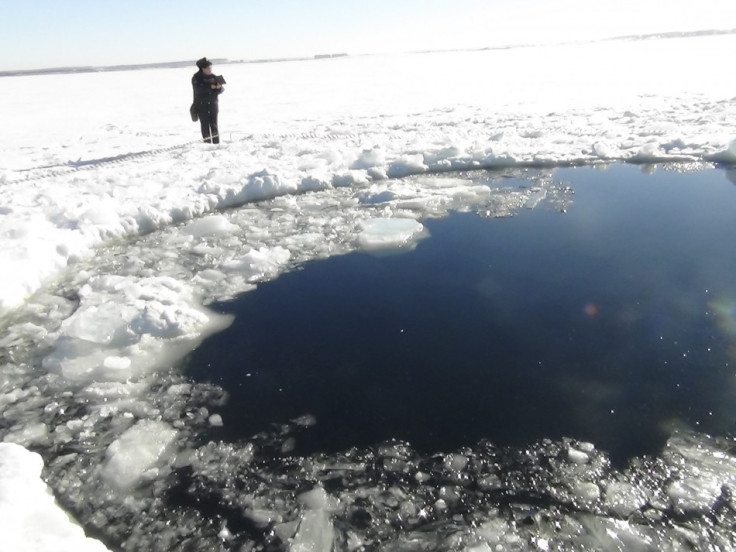Russia Calls for International Anti-Asteroid System after Meteor Terror [VIDEO]
Deputy PM Dmitry Rogozin urges nations to club together in absence of space debris interception technologies

Russia's deputy prime minister Dmitry Rogozin has called for leading powers to work together to develop a system to intercept objects falling from space, after a meteor that exploded over Russia's Ural mountains injured about 1,000 on the ground below.
"Neither we nor the Americans have such technologies," Rogozin told Interfax news agency.
His remarks echoed concerns raised by his boss Dmitry Medvedev, who said the meteor that exploded in the skies over sparesly populated parts of Russia showed how "the whole planet is vulnerable".
The interior ministry raised its initial injury count from 250 to 985 people, including 204 children. They were hurt by falling space debris and sonic blasts shattering windows and damaging buildings in the Chelyabinsk region 1,500km east of Moscow.
Russia's President Vladimir Putin said he thanked god no large fragments of the meteor fell in populated areas.
The Russian Academy of Sciences estimated that the space rock weighed about 10 tonnes and entered Earth's atmosphere at a hypersonic speed of at least 54,000km/h (33,000mph) before exploding 30-50km (18-32 miles) above ground.
"There was panic. People had no idea what was happening," said Sergey Hametov, a resident of Chelyabinsk, home to one million people.
"We saw a big burst of light, then went outside to see what it was and we heard a really loud, thundering sound."
Most of the injuries were caused by flying glass. Chelyabinsk city officials estimated that the shockwave smashed 100,000 square meres of glass.
Forty-four people were taken to hospital and two were in intensive care, RIA Novosti reported.
"I went to see what that flash in the sky was about," resident Marat Lobkovsky said. "And then the window glass shattered, bouncing back on me. My face was cut open, but not deep."
Nasa denied that the meteor was related to another asteroid named 2012 DA14 that is to pass close to the Earth - without hitting it.
"The trajectory of the Russian meteorite was significantly different to the trajectory of the asteroid 2012 DA14, making it a completely unrelated object," Nasa said on its website.
© Copyright IBTimes 2025. All rights reserved.





















